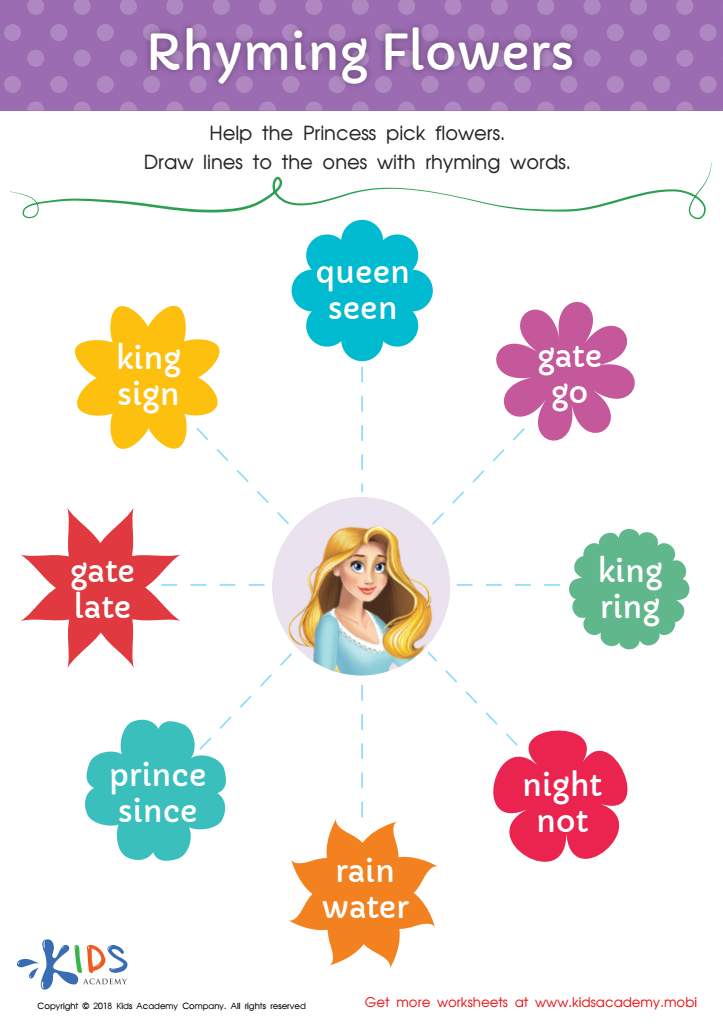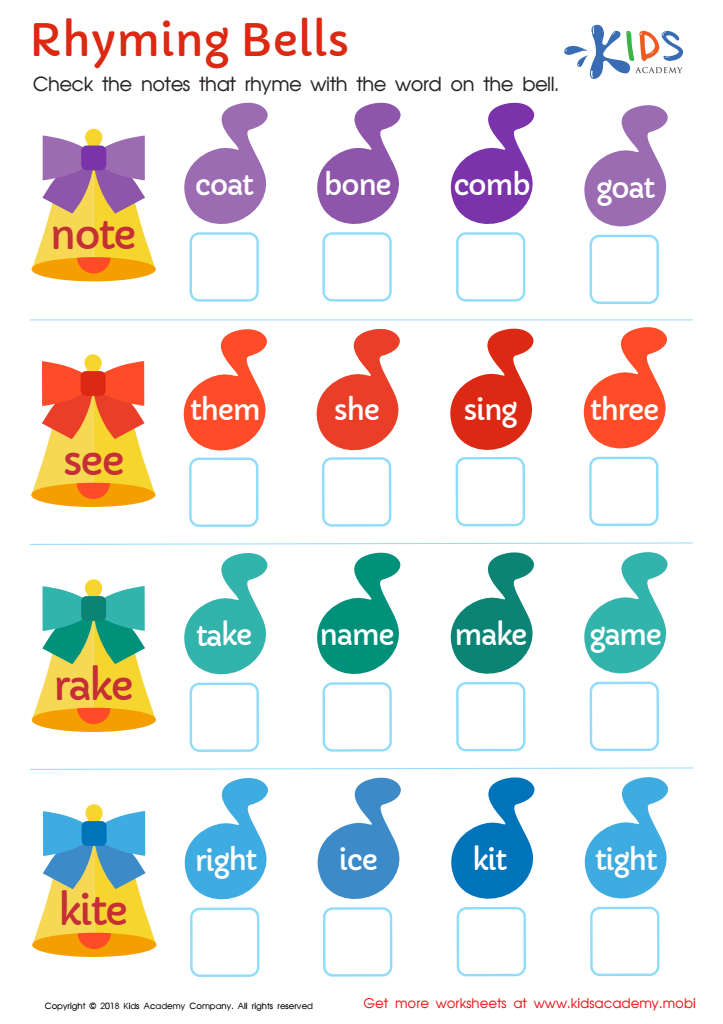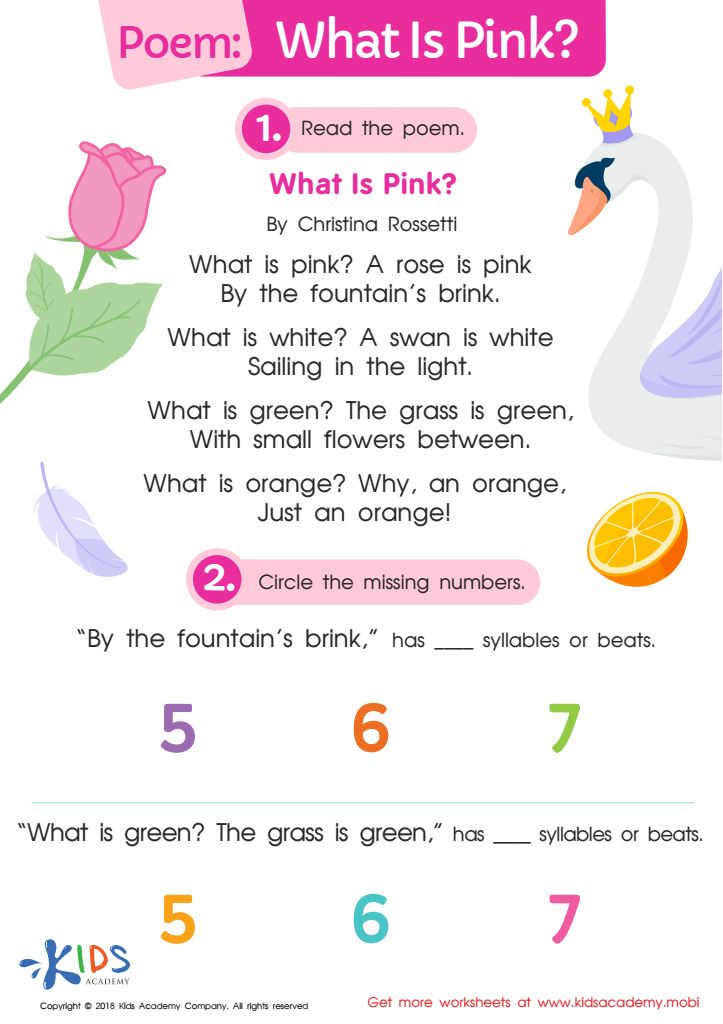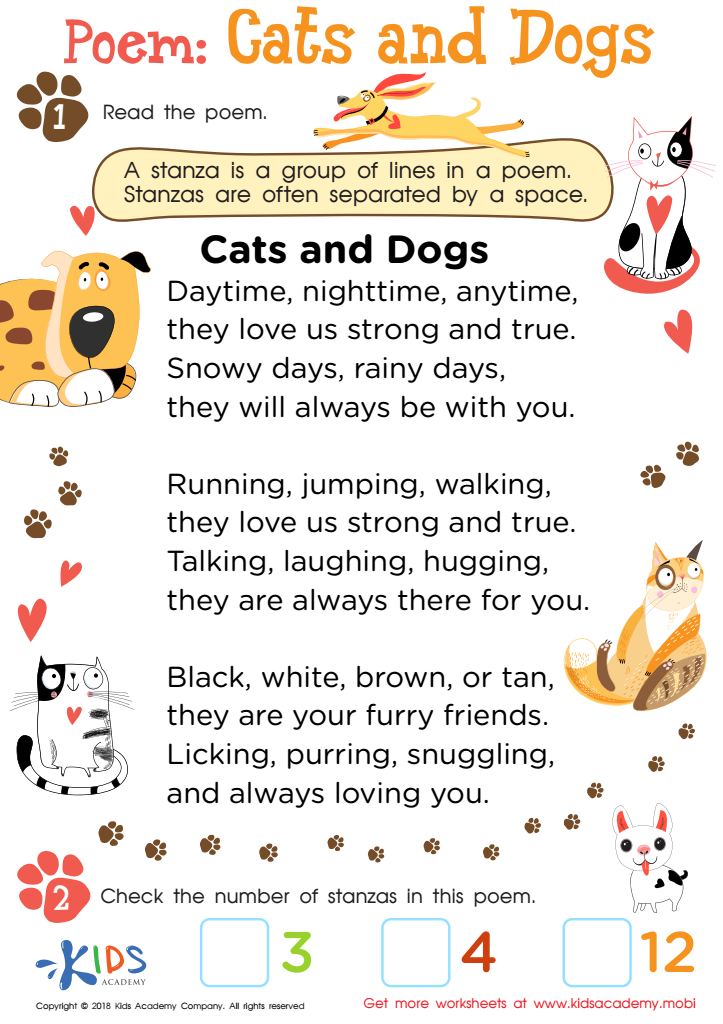Vocabulary enhancement Normal Rhyming Worksheets for Ages 7-8
7 filtered results
-
From - To
Our "Vocabulary Enhancement Normal Rhyming Worksheets for Ages 7-8" provide an engaging way for young learners to build their vocabulary through fun, rhyming activities. Designed specifically for children aged 7-8, these worksheets feature colorful and interactive exercises that reinforce the connection between words and their meanings. By focusing on rhyming patterns, kids can enjoy the learning process while effectively expanding their language skills. Ideal for classroom or home use, our worksheets are an excellent resource to support your child's journey towards mastering new vocabulary, improving reading comprehension, and developing early literacy skills. Engage your child in learning today!


Rhyming Flowers Worksheet


Rhyming Words Rhyming Worksheet


Rhyming Bells Worksheet


First Words: Picture Rhymes Worksheet


Poem: What Is Pink? Worksheet


Poem: Cats and Dogs Worksheet
Vocabulary enhancement plays a pivotal role in the cognitive and social development of children aged 7-8. At this stage, kids are building foundational language skills that will support their academic and communication abilities throughout life. By expanding their vocabulary, children can better express their thoughts, emotions, and ideas, which boosts their self-confidence and social interactions.
Rhyming activities are particularly effective for vocabulary enhancement at this age. Rhymes make learning fun and engaging, helping children to remember new words more easily. When kids practice rhyming, they become more aware of sounds and patterns in language, which is critical for reading and spelling skills. This phonemic awareness helps them decode new words when reading independently.
Moreover, rhyming can also enhance creativity and imagination. When children play with words and sounds, they experiment with language, generating a love for reading and storytelling. Teachers and parents who prioritize vocabulary development through rhyming equip children with robust linguistic tools, setting a strong foundation for future learning. Essentially, investing in vocabulary and rhyming not only supports academic success but also enriches children’s overall life experiences by fostering better communication and cognitive skills.
 Assign to My Students
Assign to My Students















